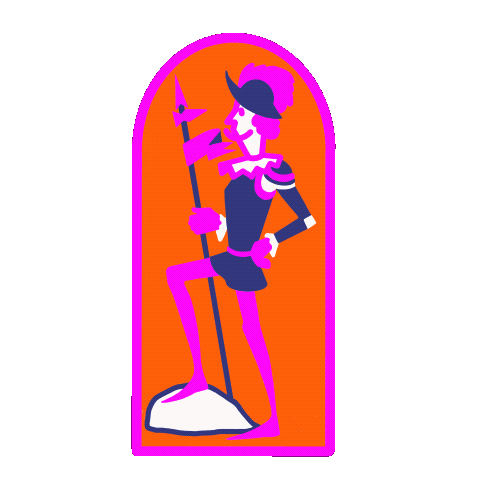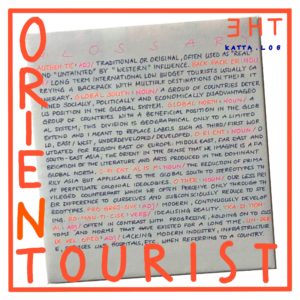The Orientourist
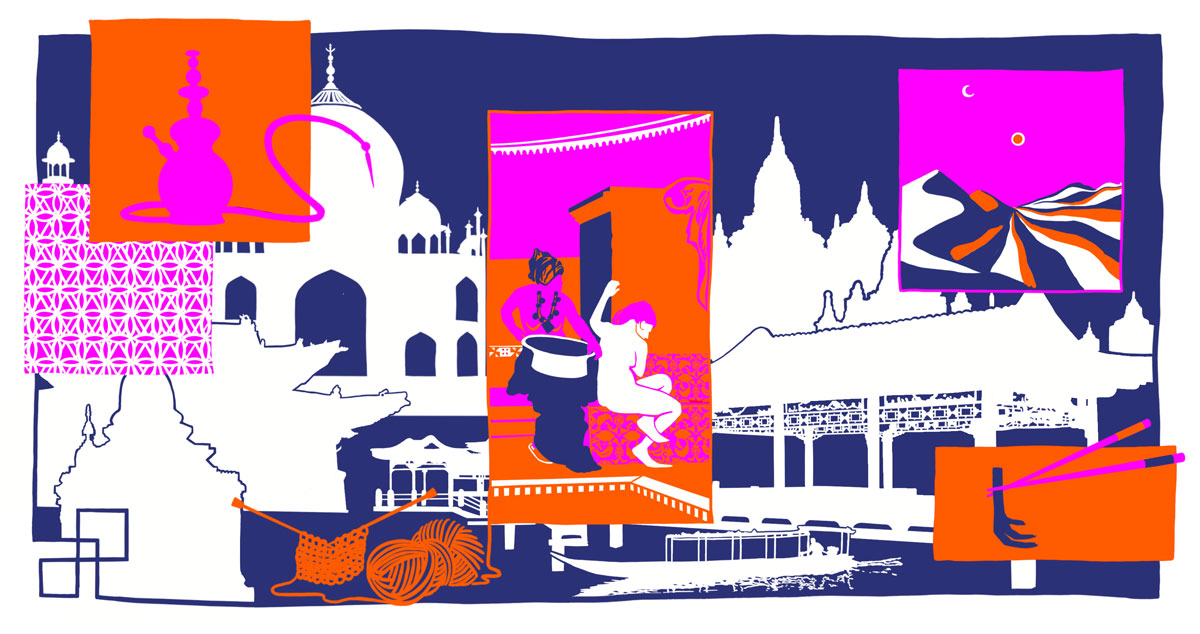
Project details
- Year
- 2021
- Programme
- illustration
- Practices
- Autonomous
- Minor
- Honours /Visual Culture
This map navigates through the recognition of the biases that fill the baggage backpack travellers carry.
The Orientourist takes a toll on reality by distorting the imagined reality of travel destinations with augmented reality. This map is not a tool to explore new places but to unpack preconceived notions internalised through cultural bias.
On every traveller’s packing list, this publication will provide young ‘adventurers’ with food for thought to travel consciously.
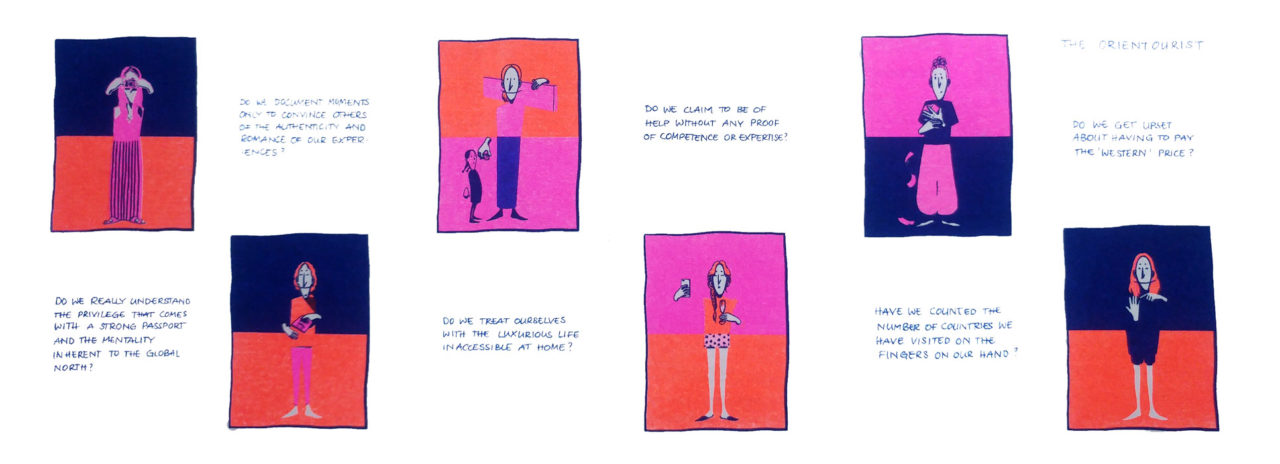
Unpacking the Baggage
Travel presents us with the different realities, forms of modernity, and customs, and succumbing to our curiosity can stimulate tolerance and form international ties. It can demystify predefined assumptions about the ‘Other‘, the world, and our own position in the global context.
But what if travelling actually does more harm than good to the communities of our destinations? Unintentionally, we often impose our own set of beliefs and our preconceived ideas onto the ‘Other‘. Many of our prejudices originate from colonial ideologies we inherited, continue to consume, and reinforce
through our actions.
The privilege of travel needs to be enjoyed with caution, humility, and gratitude. It should not be exploited for our personal gain.
The Orientourist tries to challenge our colonised minds and invites for reflection on our expectations and experiences as backpack travellers.
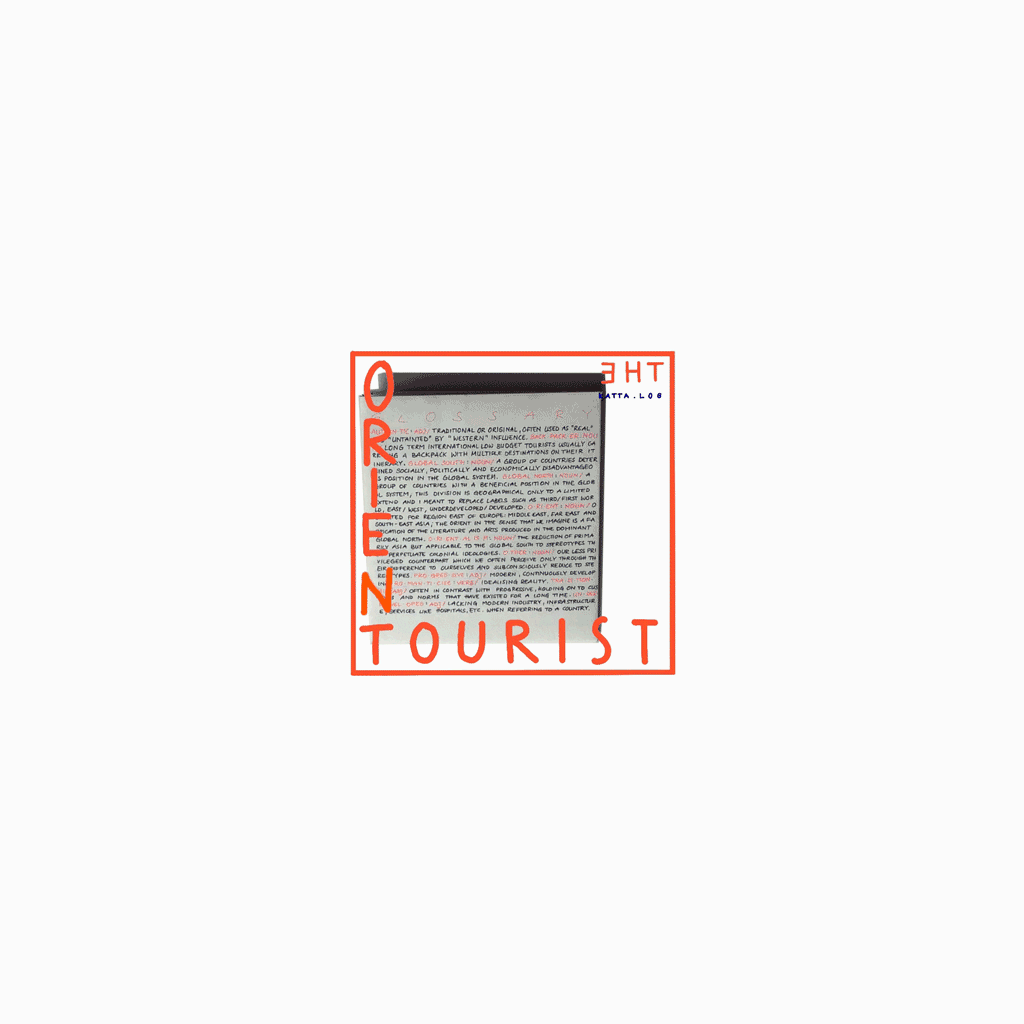
Authorial Approach
The publication ultimately presents my trajectory to unlearn and reflect on the cultural baggage of my own travel experiences. Allowing for my own presence as an (occasional) traveller and the depiction of my prejudicial expectations through illustration generates an open and honest discourse between me, my work and the reader.
Based on the idea that vulnerability radiating from the creator and critic is the most sensible method to approach sensitive topics, it stimulates identification with the author which in return encourages self-reflection. The publication introduces concepts that can and should be explored further, transforming the zine into a source for individual assessment of one’s own actions.
However, this publication is a testimony of the present state of the discourse in the scope of a graduation project. The discussion with its vocabulary and perspectives is growing and ever changing. This publication should thus be read as an introduction to a continuing discourse rather than a conclusive answer.
